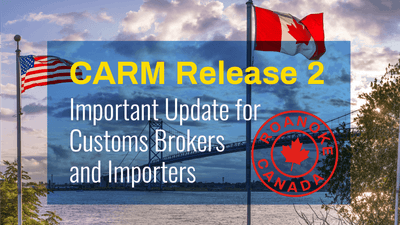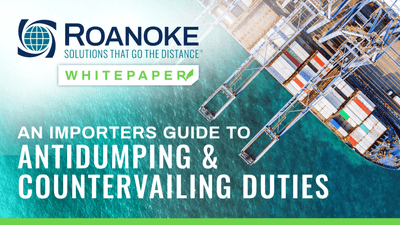December 11, 2024 | Customs Bonds
Regulatory Defense: Your Strategic Advantage Against Enforcement Actions

By: Lenny Feldman, Managing Partner at Sandler, Travis & Rosenberg, P.A.
With the government’s continued emphasis on enforcement, it has become mission-critical for parties engaged in international trade to set their strategic offensive in place through programs such as “regulatory defense. “The administration continues to issue executive actions and regulations that increase trade enforcement by stepping up the collection of section 301, 232, and 201 tariffs as well as antidumping and countervailing duties and the prosecution of trade and customs laws violations, particularly in the de minimis space. Additionally, federal agencies have issued regulations and decisions underscoring the need for product and food safety as well as intellectual property compliance. Much of this can be seen in the de minimis entry process where CBP has issued substantial claims against customs brokers and forwarders filing informal entries and manifests. In most cases, the customs broker even is expected to serve as the importer of record, which requires them to adhere to a higher standard of care, subjecting them to hefty penalties; in some cases, CBP even has suspended their entry activity.
Antidumping & Countervailing Duties
In light of recent AD/CV cases requiring importers to separately report components or subassemblies, from the finished good, that constitute aluminum extrusions and multiple cases requiring specifically worded certification statements attesting that products are not circumventing AD/CVD orders, CBP is taking steps to enhance AD/CV duty collections. Domestic parties and competing importers continue to avail themselves of the Enforce and Protect Act, to report suspected evaders to CBP. Further, recently issued bond sufficiency guidelines are designed to ensure that CBP has the ability to collect AD/CV duties that may be owed in the future.
With a major emphasis on such evasion as well as collection shortfalls, now more than ever, brokers need to carefully review their customers’ imports in connection with AD and CV investigations and subsequent orders to ensure importers are paying such duties under the proper orders. While importers may utilize foreign trade zones or bonded warehouses to lawfully transit and export such products out of the U.S. to avoid these duties, we have witnessed enforcement actions in the case of misdeclarations using such facilities.
As an example, in one case CBP issued a penalty against a customs broker for failing to appropriately classify merchandise and file the entries as type “03” designating them as antidumping. After filing a petition, supplemental petition and offer in compromise, CBP drastically reduced its claim to a few hundred dollars.
Intellectual Property & Product Admissibility
CBP continues to develop and implement strategies to combat violations of trade and customs laws and for enabling interdiction and disposal of inadmissible merchandise entering through any mode of transportation. has been exploring how to share with intellectual property rights (“IPR”) holders information to determine if there has been an infringement or violation, including goods that are voluntarily abandoned even if done so prior to seizure. Additionally, Homeland Security Investigations increasingly interacts with importers to develop cases for federal prosecutors to adjudicate related to trade law violations. Accordingly, brokers and forwarders need to ensure they collect and submit to CBP accurate product information to avoid not only border delays but also enforcement actions due to the attempted introduction of inadmissible merchandise in the de minimis, informal, and formal entry channels alike.
Meanwhile, other partner government agencies (“PGAs”) such as the Fish and Wildlife Service (“FWS”), Environmental Protection Agency (“EPA”), Consumer Product and Safety Commission (“CPSC”) and Animal and Plant Health Inspection Service (“APHIS”) continue to require new or additional data for admissibility or have already begun collecting it. These changes have led the PGAs along with CBP to re examine how to enforce cases involving the attempted introduction of inadmissible merchandise.
For lower value, e-commerce type, shipments the $800 de minimis trade continues to provide challenges. Intermediaries filing the manifest and/or entry data set need to increasingly be mindful where product admissibility requirements apply, particularly due to a lack of accurate and detailed data from customers.
For instance, in one case CBP detained counterfeit sneakers and sent formal requests to the customs broker to confirm whether they had verified the powers of attorney from the importer and to assess the broker’s level of contact with their customers. Because of the broker’s responses to the information requests, CBP provided the broker only with a warning along with suggestions on how to validate powers of attorney in the future.
Partnership Programs and Penalty Mitigation
CBP continues to indicate that programs such as the Customs Trade Partnership Against Terrorism provides benefits to importers, exporters and their intermediaries such as less security exams, However, while CBP’s Centers of Excellence and Expertise will facilitate issues for such partners they will remain very vigilant when it comes to enforcement matters like seizures, penalties and liquidated damages claims by detecting compliance anomalies within the industry.
Much of the enforcement challenges come down to how well you really know your importer or exporter customers and if they are members of partnership programs such as CTPAT Security and Trade Compliance or which entitle companies to enhanced penalty mitigation in some cases. In light of the revised customs brokers regulations, CBP has ramped up visits to brokers to ensure they collect and maintain adequate importer identification information, and proper POAs. Failure to do so, can lead to penalties up to $30,000 for a lack of responsible supervision and control and possibly having a license or permit revoked or suspended.
And we still see Census penalize forwarders where they do not really know their customers and transaction information, in cases where they misdeclare data on the electronic export electronic information filings.
For instance, in one case a forwarder received a $10,000 penalty for failing to correct an AES filing prior to export. The AES indicated the wrong port of export. Because of the response to the penalty notice, CBP ultimately assessed a fine of only a few hundred dollars.
Conclusion
In this climate of heightened enforcement, programs such as “regulatory defense” provide brokers, forwarders and other intermediaries with the assurance that should a potential claim arise from any major government agency or department you will have the representation needed to dispose of, or at least mitigate the action. Specifically, through regulatory defense, you will receive the necessary consultation and legal assistance if an administrative fine, liquidated damages or penalties claim; license revocation and/or suspension proceeding; or letter of investigation is initiated against you or your company. With laws and policies demonstrating the government’s continued emphasis on enforcement, brokers, forwarders, warehouse proprietors and other intermediaries cannot underestimate the value of such protection.
Regulatory defense is a legal service exclusively available to Roanoke’s Customs Broker, Freight Forwarder and other Intermediary clients in collaboration with Sandler, Travis & Rosenberg, P.A. (STR).
Contact your service representative today to request a quotation.
About the author:
Lenny Feldman is a Managing Partner at Sandler, Travis & Rosenberg, P.A., based in Miami. He previously co-chaired the Customs and Border Protection’s Commercial Customs Operations Advisory Committee, advising on critical trade issues like forced labor, intellectual property, and regulatory reform. He currently serves as Customs and General Counsel to the National Customs Brokers & Forwarders Association of America (NCBFAA).
Lenny specializes in resolving complex import and export compliance issues, including classification, tariff engineering, duty savings, and enforcement strategies. He assists clients with compliance before agencies such as CBP, DHS, and FDA, and is a recognized leader and educator in international trade and business reform.













